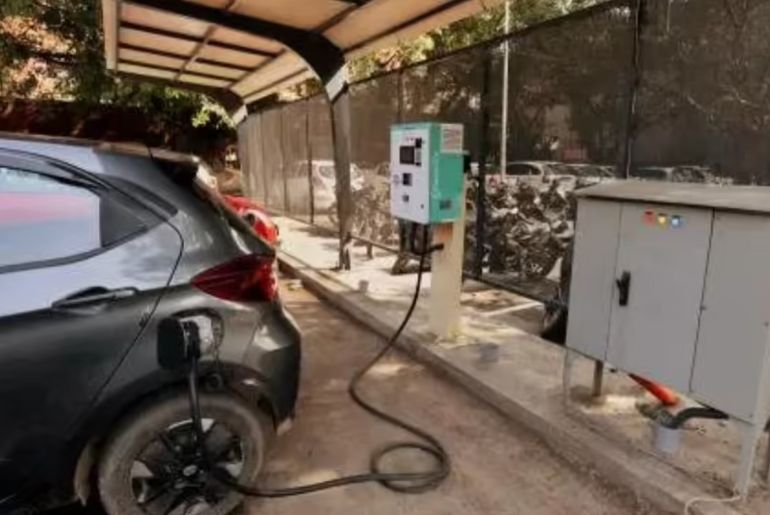In a significant push to accelerate electric vehicle (EV) adoption, the Pune Municipal Corporation (PMC) is planning to expand its EV charging infrastructure to cater specifically to two-wheelers and three-wheelers and is also exploring battery-swapping facilities for autorickshaws, a senior civic official confirmed.
While the city has already embarked on a project to install charging stations for four-wheeler EVs, the lack of public charging infrastructure for smaller electric vehicles remains a challenge. Manisha Shekatkar, Chief Engineer of PMC’s Electrical Department, emphasised the need to address this gap to encourage a broader shift to electric mobility.
“We are now working on a plan to start EV charging stations across the city for two-wheeler and three-wheeler EVs, as there is no public facility for those vehicles to charge their batteries. Only if we provide EV charging stations for two-wheelers and three-wheelers will more people shift to EVs,” said Manisha Shekatkar.
Current Status of EV Charging in Pune
Under a Public-Private Partnership (PPP) model, the PMC has approved 82 EV charging stations across the city. However, only 43 are operational as of now. The private agency executing the project shares revenue equally with PMC and is provided civic land to set up the stations.
The delayed rollout is due to several factors. Shekatkar noted that 39 stations could not be activated because many of the designated locations are in remote areas with low public visibility. Additionally, power supply constraints, including the need for new transformers, have further slowed progress due to the high installation costs.
Of the 82 sanctioned stations:
-
21 are in civic gardens
-
16 onwards office premises
-
30 on PMC-owned land
-
8 in cultural or museum areas
-
7 in civic hospital areas
Despite these hurdles, the charging stations that are operational have reportedly received a positive response from the public.
Battery Swapping: A Future Alternative
To further streamline EV usage, especially for commercial operators like autorickshaw drivers, the PMC is considering battery-swapping infrastructure. This approach would allow drivers to exchange a depleted battery for a fully charged one, dramatically reducing downtime.
“We approached battery manufacturers, but it seems they are not ready to begin a battery-swapping facility yet. Still, we aim to launch at least one pilot station,” said Manisha Shekatkar.
The civic body already provides financial assistance for retrofitting petroleum-powered autorickshaws into electric ones, reinforcing its commitment to cleaner urban transport.
EV Adoption on the Rise
EV adoption is steadily gaining ground in Pune. During the financial year 2024–25, the city saw:
-
19,457 pure electric vehicles added
-
13,930 battery-operated vehicles
-
2,246 hybrid EVs
Out of a total of 302,760 new vehicles registered during the same period, the surge in electric options reflects a growing consumer shift toward sustainable transportation.
By addressing the charging and battery-swapping needs of two- and three-wheelers, PMC hopes to build an inclusive, efficient, and environmentally friendly transportation ecosystem across Pune.

